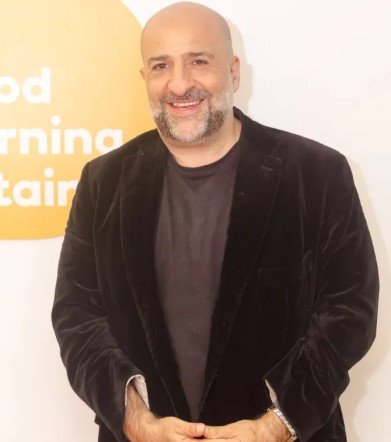British comedians Jimmy Carr and Omid Djalili are facing sharp criticism from human rights groups for their upcoming performances at the Riyadh Comedy Festival in Saudi Arabia. The event, set to run from September 26 to October 9, 2025, coincides with the seventh anniversary of journalist Jamal Khashoggi’s murder, sparking claims that it serves to distract from the country’s ongoing free speech crackdowns and other abuses.
Festival Lineup Draws Global Stars Amid Controversy
The Riyadh Comedy Festival boasts a star-studded roster, pulling in big names from around the world. Organizers promote it as the largest comedy event ever, with over 50 performers taking the stage in Saudi Arabia’s capital.
This year’s highlights include American comedians like Kevin Hart, Dave Chappelle, Chris Tucker, and Bill Burr. British talent features prominently too, with Jimmy Carr teaming up with Louis C.K. for a joint show on October 6. Omid Djalili is slated for October 1 at the Mohammed Al-Ali Theatre in Boulevard City.
Carr, known for his sharp wit on shows like 8 Out of 10 Cats Does Countdown, has built a career on edgy humor. Djalili, a veteran stand-up and actor, often tackles political themes in his acts. Yet their decision to perform has ignited debate, especially given past controversies surrounding some lineup members.

Louis C.K., for instance, admitted to sexual misconduct in 2017 after allegations from multiple women. His inclusion adds another layer to the festival’s already heated spotlight.
Human Rights Groups Call Out Whitewashing Efforts
Campaigners argue the festival is more than just laughs. They see it as a tool for Saudi leaders to polish their image amid serious accusations.
Human rights watchdogs point out that Saudi Arabia has a track record of stifling dissent. In recent years, authorities have jailed journalists, activists, and even social media users for speaking out. One notable case involved a student from Leeds who received a long prison sentence for critical tweets.
The timing raises eyebrows too. The event overlaps with October 2, the date of Khashoggi’s 2018 killing inside the Saudi consulate in Istanbul. That murder, widely blamed on Saudi agents, drew global outrage and sanctions.
Groups urge performers to speak up. They suggest comedians use their platforms to demand the release of detained dissidents rather than stay silent.
- Key human rights concerns in Saudi Arabia include restrictions on free speech, women’s rights, and treatment of migrant workers.
- Recent executions and arrests highlight ongoing issues, with reports of over 170 executions in 2024 alone.
- Past entertainment events, like music festivals, have faced similar backlash for ignoring these problems.
Comedians Respond to Growing Criticism
Not all performers are staying quiet about the uproar. Some have addressed the controversy head-on, while others have pulled out.
American comedian Tim Dillon was dropped from the lineup after making jokes about forced labor in Saudi Arabia on his podcast. He later quipped that the pay was too good to pass up initially, but the festival organizers cut ties.
Zach Woods, known from shows like The Office, publicly slammed colleagues for participating. He accused them of helping whitewash abuses in a country linked to events like 9/11.
Meanwhile, Carr and Djalili have not issued public statements on the backlash. Their silence contrasts with past instances where artists like Nicki Minaj canceled Saudi gigs in 2019, citing support for women’s rights and free expression.
Fans and critics on social media platforms express mixed views. Some defend the comedians, arguing cultural exchanges can promote change. Others call for boycotts, sharing stories of imprisoned Saudis.
Broader Impact on Entertainment and Diplomacy
Saudi Arabia’s push into global entertainment fits a larger strategy. Under Vision 2030, the kingdom aims to diversify its economy and attract tourists through events like Riyadh Season.
This comedy festival is part of that effort, following sports spectacles and music concerts. Yet it mirrors criticisms of sportswashing in soccer and boxing, where big money lures stars despite ethical concerns.
Experts note that such events can boost soft power. For instance, hosting stars like Kevin Hart could draw international crowds and media attention, potentially overshadowing negative headlines.
However, the backlash might deter future participants. Similar controversies hit events in 2019, when performers faced pressure over human rights.
| Aspect | Details |
|---|---|
| Festival Dates | September 26 to October 9, 2025 |
| Location | Riyadh, Saudi Arabia (various venues like Boulevard City and ANB Arena) |
| Key Performers | Jimmy Carr, Omid Djalili, Louis C.K., Kevin Hart, Dave Chappelle |
| Human Rights Issues | Free speech repression, journalist executions, activist detentions |
| Anniversary Tie-In | Seventh year since Jamal Khashoggi’s murder on October 2 |
What This Means for Comedy and Free Speech
The situation puts comedians in a tough spot. Many thrive on pushing boundaries, yet performing in restrictive environments raises questions about hypocrisy.
Supporters argue that comedy can bridge divides and spark dialogue. Critics counter that it normalizes oppression without real change.
As the festival approaches, eyes remain on whether more stars will withdraw or use their sets to address issues. This could set precedents for how entertainers handle gigs in controversial spots.
Share your thoughts in the comments below. Do you think comedians should boycott such events? Let us know and spread the word to keep the conversation going.
